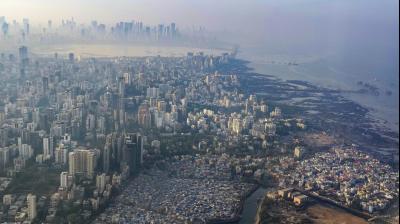Unhealthy situation even at government hospitals
Pooja Narkar holds up her mangalsutra, which she wanted to keep as collateral at a chemist store opposite KEM Hospital that refused to accept the Rs 500 and Rs 1,000 notes that she wanted to pay with for her relative’s medicines. (Photo: Shripad Naik)
Pooja Narkar holds up her mangalsutra, which she wanted to keep as collateral at a chemist store opposite KEM Hospital that refused to accept the Rs 500 and Rs 1,000 notes that she wanted to pay with for her relative’s medicines. (Photo: Shripad Naik)
After the Centre on Tuesday cancelled bank notes of Rs 500 and Rs 1,000 denominations as legal tender with effect from Wednesday, several patients admitted in private and government-run hospitals were inconvenienced while buying medicines and also for paying their bills in cash.
Appa Ahire, whose father-in-law hailing from Ulhasnagar is admitted at the privately-run Bombay Hospital at present for a dysfunctional kidney, told The Asian Age that the hospital authorities allegedly refused to discharge his patient on Wednesday. “My father-in-law has a dysfunctional kidney. He got discharged today, but they have not accepted the money we gave since I am unable to pay for the dues without using Rs 500 and Rs 1,000 notes,” Mr Ahire said. He added, “We have to pay Rs 50,000. How can we pay Rs 50,000 in change, and not use Rs 500 and Rs 1,000 notes ”
Employees of several medical stores at and around Parel’s civic-run KEM Hospital insisted on being paid in change too, and that led to arguments between them and customers. A patient’s relative, Pooja Narkar (39), who was at a chemist store opposite the KEM hospital, told The Asian Age, “My mother-in-law was shifted from Sion hospital, and I am urgently in need of medicines. But since I have currency notes of Rs 500 and Rs 1,000, the chemist is not giving me the medicines.”
She added, “I am ready to keep my mangalsutra as collateral for medicines, since I need the medicines desperately.”
Civic-run and state-run hospitals are accepting Rs 500 and Rs 1,000 notes, but they do not have enough cash to give in change.
According to Dr Avinash Supe, the dean of KEM hospital and director of major BMC-run hospitals, “We are accepting notes of Rs 500 and Rs 1,000, but we don’t have enough notes of Rs 10, Rs 20, Rs 50 and Rs 100 to give back in return. We have hence asked for the same from our treasury. Around Rs 5-6 lakh would be enough for us to deal with the situation.”
This situation has affected the patients who are admitted in hospitals and facing trouble while buying medicines and paying bills in cash. Medical stores, especially, are not giving medicines and asking for change, which has resulted in major chaos at hospitals and medical stores.
For the next 72 hours, these denominations will continue to be accepted at state-run hospitals, airports, bus stands, railway stations, petrol/diesel/CNG stations, milk booths, crematoriums, burial grounds and ration shops. The government instructions say that families of patients will also be able to purchase medicines against prescriptions for the next 72 hours, through till November 11.


















